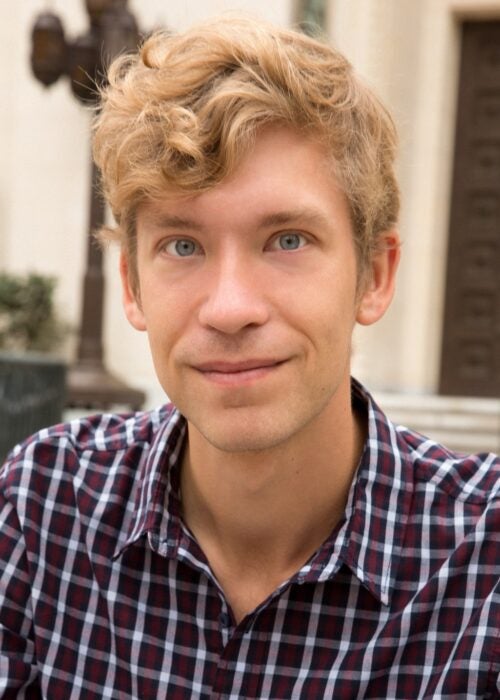Aro Velmet

Research & Practice Areas
Modern Europe, Transnational History, Imperialism, Science, Technology and Medicine.
Biography
I am a historian of modern Europe, colonialism, science, technology, and medicine. I am interested in how utopias of technological progress are put in the service of statecraft, how experts, interest groups, and subalterns use political technologies, and in the unintended consequences of technological development.
My book, Pasteur’s Empire (OUP, 2020) looks at how microbiology became a tool of colonial governance in French West Africa, North Africa, and Indochina, and how African politicians, Vietnamese doctors, French administrators, international regulators and many others shaped the development of vaccination programs, industrial agriculture, urban policing, education, and many other fields of social life. I argue that Pastorian technologies provided a tool for colonial administrators that allowed them to maintain a semblance of a humanitarian “civilizing mission”, while avoiding the kinds of large-scale urban infrastructure projects that were carried out in the name of social medicine in Europe.
I am currently working on a history of digital statecraft in the Soviet Union, post-Soviet Estonia, and extending into the global South. I trace the development of public sector digitization from the advent of Soviet cybernetics in the 1960s to e-voting programs of the 2010s. I am interested in how computerized data processing became seen as a panacea to a variety of social ills in the Soviet Union, and how experts who had spent decades using computerization to build a socialism with a human face reprofiled themselves after 1991 to build a liberal democracy with a human face. You can read some early work on this topic here.
Since 2021, I have been a part of the Deep Transitions research project at Tartu University. The project brings together historians, sociologists, economists, and innovations studies scholars to study the intertwined evolution of socio-technical systems of industrial modernity in Estonia and beyond, and to develop points of intervention for accelerating the transition towards more sustainable infrastructures – a second deep transition.
All of my research is inflected by an interest in gender studies. I have written on the intersection of imperialism and beauty culture in early twentieth century France, on demographic anxieties and anti-gender movements in late twentieth century Eastern Europe, and on masculinity in the history of science. For a sample of this work, you can check out my articles in the Journal of the History of Ideas and in French Historical Studies.
At USC I teach courses on European history in a global context, and transnational history courses on the history of science and technology. I also offer seminars on histories of the apocalypse, on the history of drugs, and on the history of computing. I also co-convene, with Alaina Morgan, the history department’s monthly workshop.
I have an active profile in public-facing scholarship and journalism. I am the editor of Vikerkaar, a magazine of culture and politics published in Estonia and an affiliate of Eurozine. In 2018, I curated a part of the permanent exhibition at Vabamu, the Estonian museum of freedom, and in 2021 I curated a tour of the factory town of Sindi, in Western Estonia.
Education
- Ph.D. History and French Studies, New York University, 2017
- B.A. History, University of Pennsylvania, 2010
- Other Degree History and Political Science, University of Tartu, 2007
-
Visiting and Temporary Appointments
- Visiting Reseacher, University of Tartu, 01/2021-12/2023
-
Book
- Velmet, A. (2020). Pasteur’s Empire: Politics and Bacteriology in France and Its Colonies, 1890-1940. Oxford University Press.
Book Chapters
- Velmet, A. (2019). “From Universal Relaxant to Oriental Vice: Race and French Perceptions of Opium Use in the Moment of Global Control”. Prohibitions and Psychoactive Substances in Histor pp. 33-50. London: Routledge.
- Velmet, A. (2018). “Breaking the Silence? Contradiction and Consistency in Representing Victimhood in Baltic Museums of Occupations”. Narratives of Exile and Identity Central European University Press.
- Velmet, A. (2012). “Breaking Silences: Representing Occupations in Baltic Museums”. Maps of Memory: Trauma, Identity and Exile in Depo pp. 178-211. Lietuviu literaturos ir tautosakos institutas..
Journal Article
- Velmet, A. (2020). The Blank Slate E-State: Estonian Information Society and the Politics of Novelty in the 1990s. Engaging Science, Technology, and Society. Vol. 6, pp. 162-184.
- Velmet, A., Kaljundi, L. (2020). New developments in Estonian historical research in the twenty-first century. Acta Historica Tallinensia. Vol. 26 (1), pp. 167-189.
- Velmet, A. (2019). “When Demography becomes Democracy: Anticommunism, Sovereignty and the Problem of Reproduction in Estonia, 1980-2016”. Journal of the History of Ideas. Vol. 80 (3), pp. 455-478.
- Velmet, A. (2019). The Making of a Pastorian Empire: Tuberculosis and Bacteriological Technopolitics. Journal of Global History. Vol. 14 (2), pp. 199-217.
- Velmet, A. (2019). In the Image of Pasteur: Capitalism, Empire and the Scientific Ethos in French Microbiology, 1890-1940. French Historical Studies (forthcoming).
- Velmet, A. (2014). “Beauty and Big Business: Gender, Race, and Civilizational Decline at French Beauty Pageants, 1920-1938”. French History. Vol. 28 (1), pp. 66-91.
- Velmet, A. (2011). “Occupied Identities: Constructing National Identity in Baltic Museums of Occupations,”. Journal of Baltic Studies. Vol. 42 (2), pp. 189-211.
-
- Member, Estonian Young Academy of Sciences, 2021
- Honorable Mention, Alf Andrew Heggoy Prize for Best Book in French Colonial History, 2020-2021
- Honorable Mention, Laurence Wylie Prize for French Cultural Studies, 2020-2021
- European Commission Marie Sklodowska Curie Fellowship, 2017-2019
- Estonian Research Council, 2nd Prize, Best Dissertation in the Humanities and Social Sciences, 2017-2018
- Estonian Teacher’s Journal, Annual Laureate, 2016-2017
- Jerrold Seigel Fellowship in Intellectual or Cultural History, 2016-2017
- Josephine De Karman Fellowship, 2016-2017
- Cultural Weekly Sirp, Annual Laureate, 2014-2015
- NYU Michel Beaujour Fellowship, 2014-2015
- Society for the Study of French History Best Article Prize , 2014-2015
- Phi Beta Kappa, 2010-2011